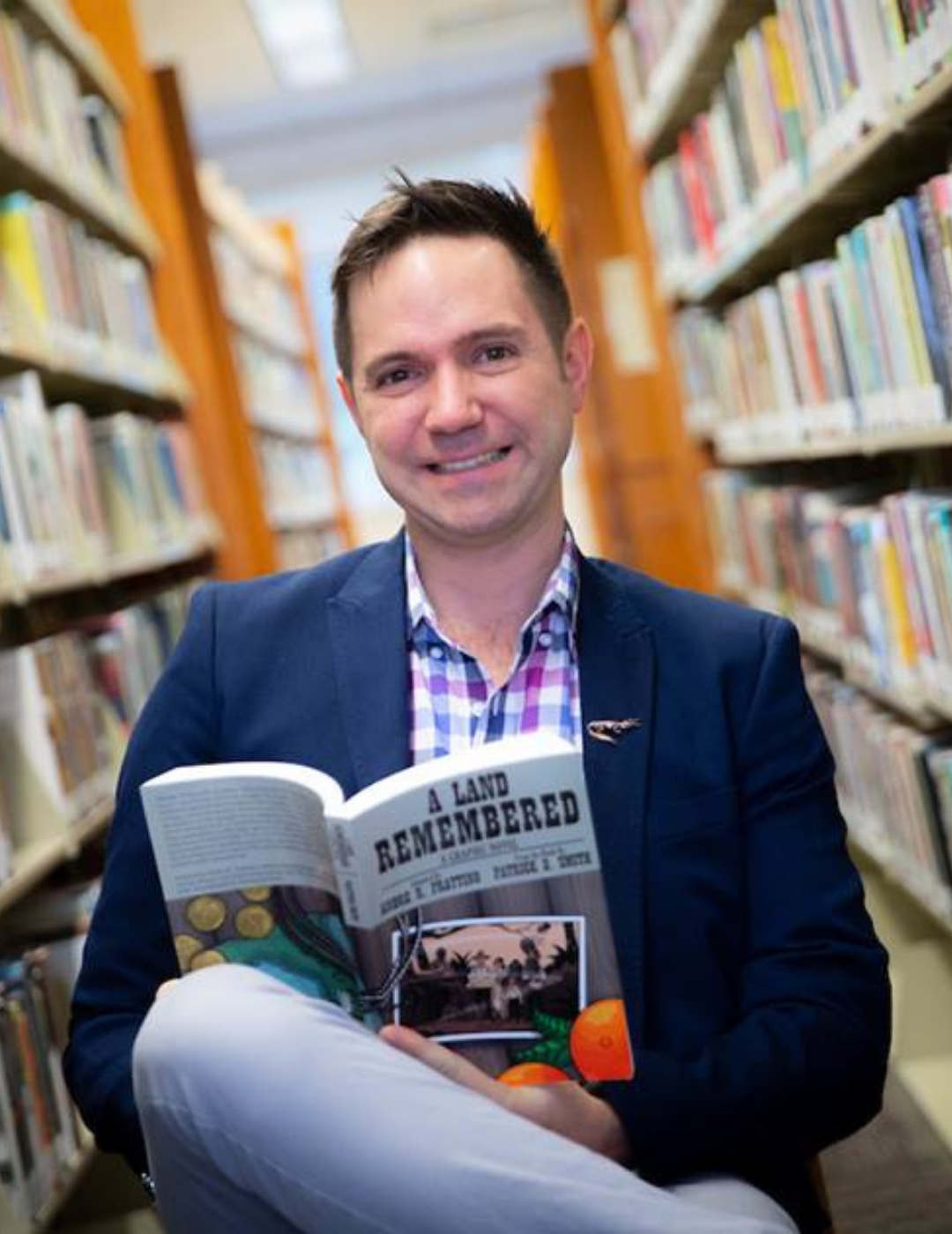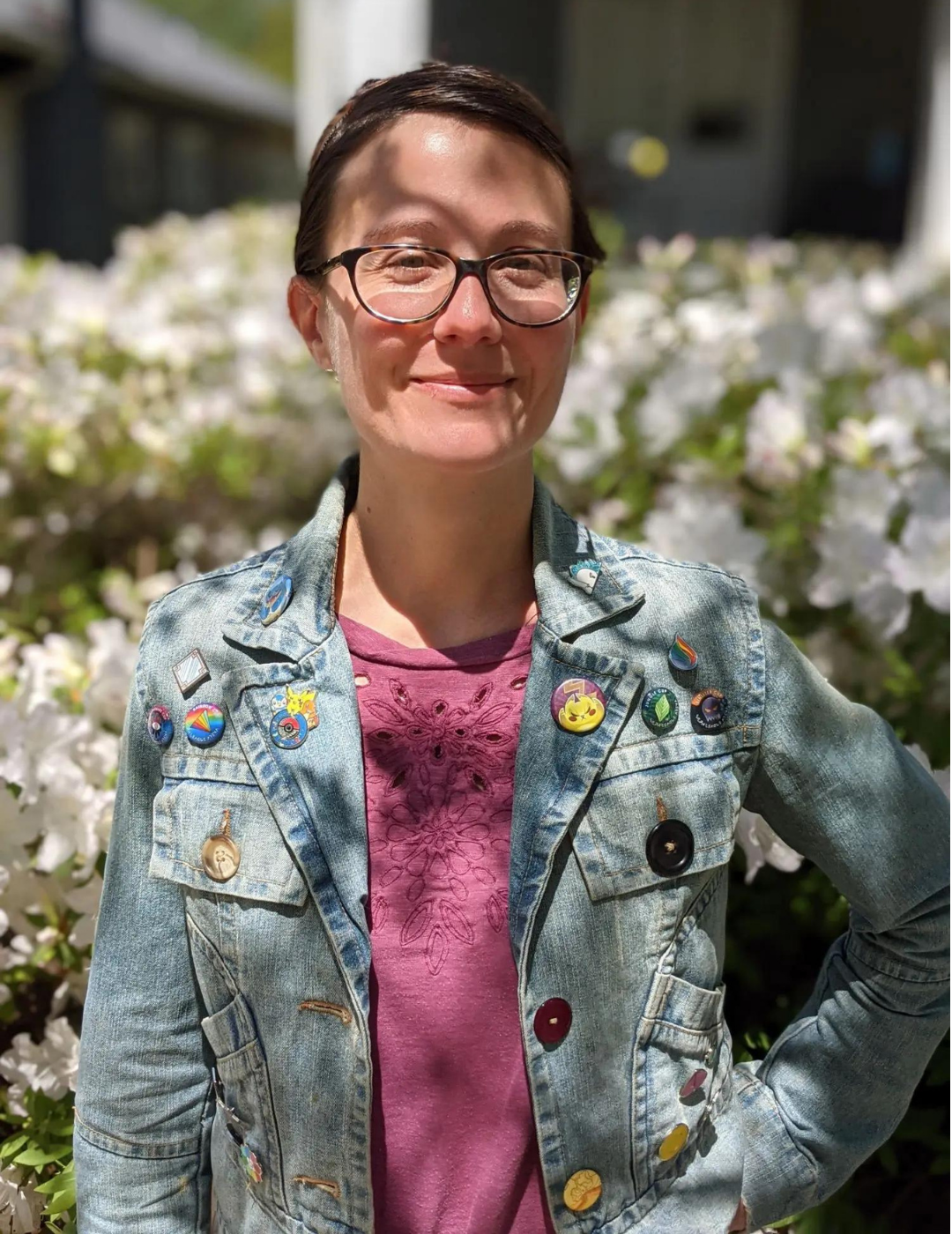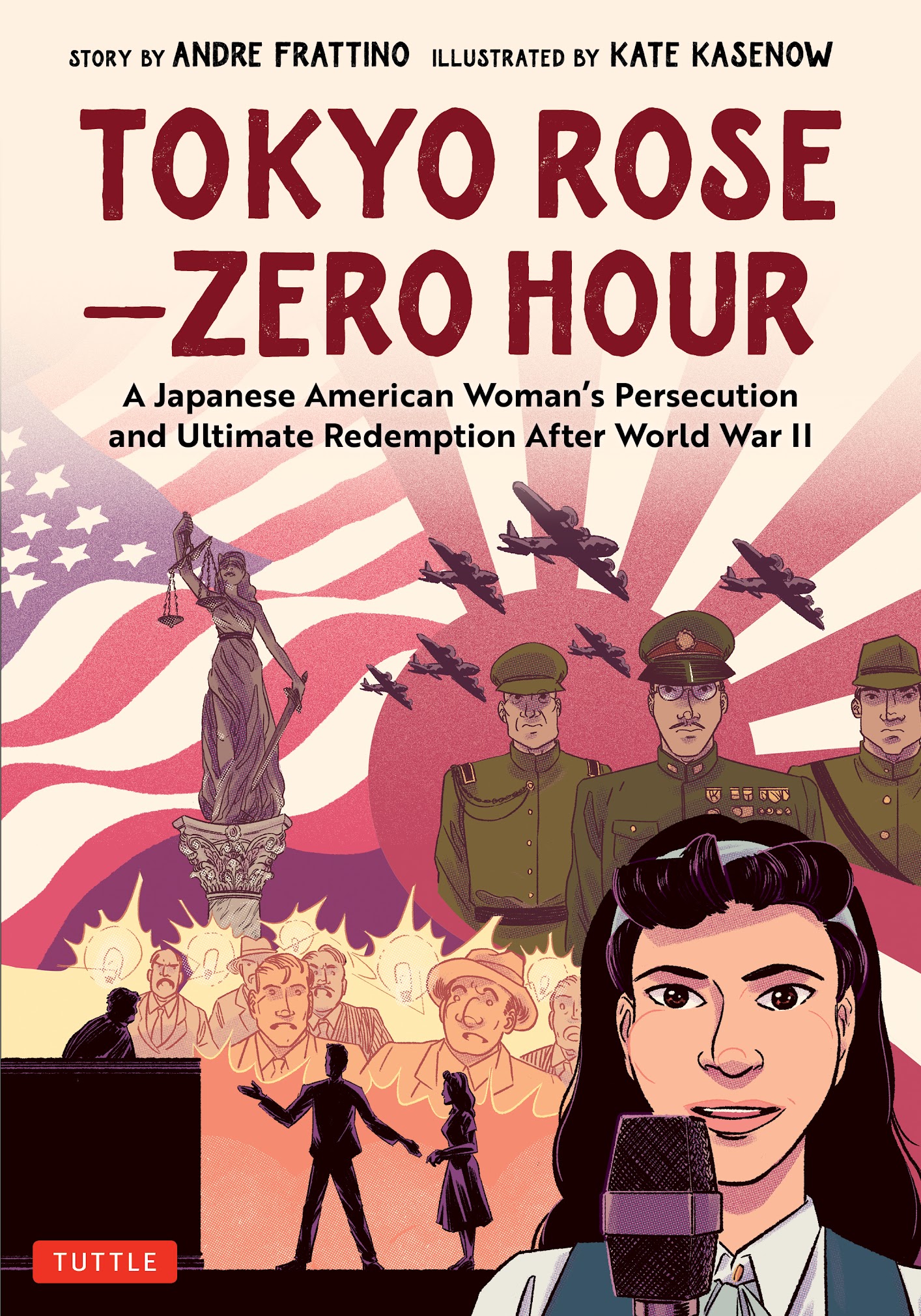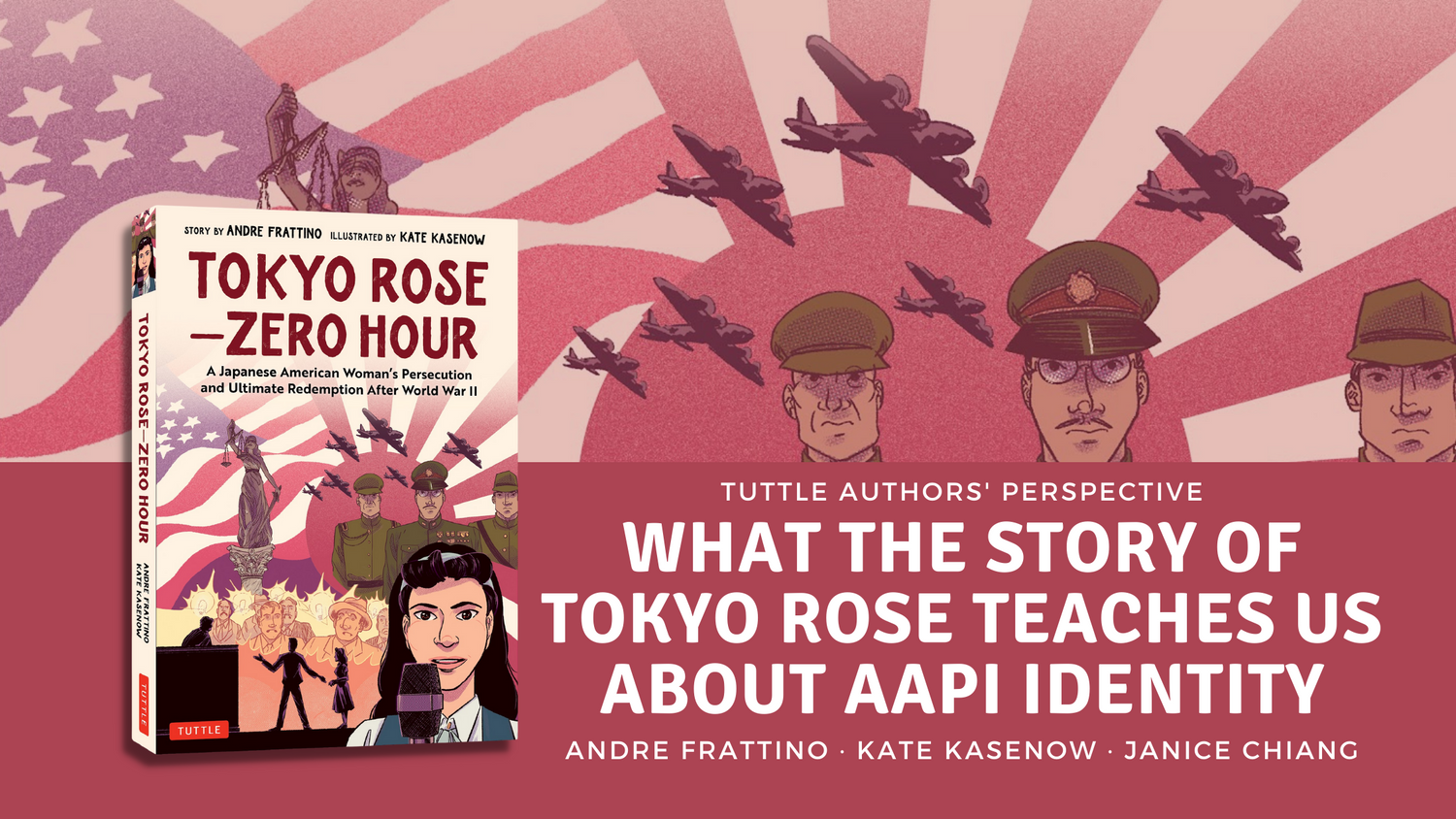It's Asian Pacific American Heritage Month here in the U.S., and we want to share some thoughts from the authors of the upcoming Tuttle graphic novel, Tokyo Rose: Zero Hour. In case you are unfamiliar with the Tokyo Rose story, it centers on Iva Toguri, a Japanese American woman who was visiting her relatives in Tokyo shortly before the attack on Pearl Harbor. Trapped in Japan, Iva refused to renounce her American citizenship. But she was forced to take a job with Radio Tokyo to host "Zero Hour," a propaganda broadcast aimed at demoralizing American troops — in the role of the infamous Tokyo Rose. After the war, she was unjustly imprisoned by the U.S., and eventually pardoned by President Gerald Ford.
Here are the authors' reflections in light of AAPI Heritage month:
Andre Frattino, Author:

For me, the most engaging thing about the story of Iva Toguri was that she was a person who knew exactly who she was. Despite everything that both Japan and America threw at her — expectations, labels, stereotypes, and harassment — she never wavered from her identity. She held fast to her beliefs and her innocence when it would have been easier to simply roll over and accept responsibility for the crimes she was convicted of. In the end, she received her pardon and even her just honors, but it was a hard-fought battle by a woman who was fighting so many prejudices from so many directions for so many years. I think that's sadly an important lesson we still have to learn even seventy years later: fighting against the current to remain true to ourselves and our convictions.
It's no surprise that Asian Americans had to fight a battle on both sides, the war abroad and the war within. From the internment camps to the ridicule and projection that other Americans forced upon them, it didn't end with the conclusion of the war, sadly. And it still hasn't ended to this day. Asian hate is such a real thing, and it's not Asian Americans' responsibility alone to educate and fight against it — it's all our responsibility as Americans. Iva won her own battles, but she had allies along the way. And I hope that through our book, we too can be an ally to Iva's story and beyond.
Kate Kasenow, Illustrator:

As soon as Andre approached me with this story, I knew it was important. Iva Toguri was always unabashedly herself, despite traditions and prejudice and literal war. If only we could all have just an ounce of her courage. This particular AAPI Heritage Month, Iva's story is both a harrowing reminder and a call to action for all of us to do what we can where we can — especially to Stop Asian Hate.
Our diversity enriches us. We should take every chance to celebrate it. I am honored that my actions have allowed me to be a small part of Iva's story. In helping to carry that story forward, I aim to share her unique courage with you. If we keep sharing the spark then we will all help to light the way forward together.
Janice Chiang, Lettering & Foreword:

As an Asian American woman, I am familiar with the life of Iva Toguri. Born during the Cold War era, my family viewed the Japanese Internment camps as a negative period in American history. We also understood the legal system permitted seizing finances and property of Asian Americans as well as prison confinement. My formative years were spent trying to stay off the radar of these repressive laws which enforced the practice of racism.
Racist slurs and aggressive behavior from hateful people have always been part of my life, then and now. Strangers will look at me with anger and contempt for simply existing, as if I had entered their homes and murdered their pets.
We are now in the third year of the Covid pandemic. Due to the origin of the virus in Wuhan, China, Asian people have been targeted for racist attacks. The previous White House leaders and administration perpetuated this hate through their language, calling the pandemic the "Kung Flu" and "Chinese Virus." Ignorant people have taken this as permission to act out their worse impulses. Physical attacks on and murders of Asian people in their communities and public places have continued to escalate.
Running in parallel with the violence against Asian Americans is the violence against People of Color, especially Black Americans. Historically, the vile institution of slavery seized native people in Africa and the Caribbean to work and reproduce without compensation. And that dehumanization of an entire group was then institutionalized through the legal system. Black Lives Matter has been an important development for all decent citizens of different backgrounds to join together and defend justice.
The recent domestic terror murders of innocent Black citizens in Buffalo, New York is a bellwether tragedy. Our government, elected officials, community members, family, and friends all have to do better to protect this group of citizens. I know that if I was shopping at Tops Market at the time of the attack, I would have been a target, too. I've had a shotgun pointed at me during a routine traffic stop less than half a mile from my home.
My deep wish for our graphic novel is to open the hearts and minds of readers of all ages to view Iva Toguri as a whole person. She is not a stereotype of the evil Asian woman temptress but a real person who was a daughter, niece, cousin, co-worker, wife, friend, and neighbor. We are all connected to one another on many levels and with different degrees of bonding. We need to take a moment to step outside of our internal monologue, peer pressure, and the fray of social media. If we simply engage with one another as human beings, then all our lives will be infinitely richer and more meaningful.
Even though racism will always be a part of my life because of my physical appearance, I remain hopeful. I believe everyone has the unique superpower of knowledge from real-life experiences. I’ve learned that the majority of our citizens are compassionate people.

Written by Andre Frattino and illustrated by Kate Kasenow, Tokyo Rose: Zero Hour has an introduction explaining the "Tokyo Rose" phenomenon and the devastating effects of World War II on Asian-American communities that continue to reverberate. In a world rife with misinformation and racial prejudice, the story of Tokyo Rose has never been more relevant.
Tokyo Rose: Zero Hour releases this fall. Preorder now.

